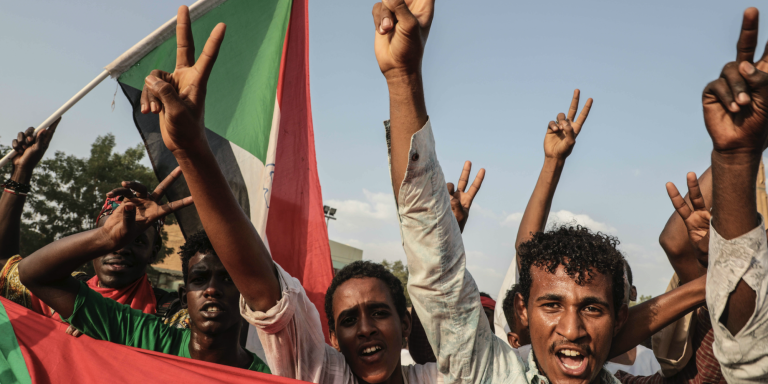INTELBRIEF
July 12, 2019
IntelBrief: A Political Breakthrough in Sudan?

- Following months of fighting, Sudan’s current ruling military government and the political opposition have forged a power-sharing agreement.
- What happens next in Sudan will depend in large part on the rivalries and divisions that characterize the current regime, which is far from a monolith.
- One of the most critical questions about the power-sharing agreement is precisely what level of access to control over decision-making civilians will have under the new arrangement.
- It is incumbent upon the international community to continue to monitor events closely and work with Sudan’s political opposition to ensure that the power-sharing agreement succeeds.
.
Following months of fighting, Sudan’s current ruling military government and the political opposition have forged a power-sharing agreement. The current deal stipulates a three-year period during which both sides govern together, after which elections will be held, ostensibly to usher in the era of democratic rule in the country. Under the terms of the preliminary agreement, an Army general will lead the transition for the first 21 months, before handing over the reins to a civilian for the next 18 months. A transition to democracy in Sudan would be historical, especially following the three-decade reign of brutal strongman Omar al-Bashir, whose draconian rule crushed political opposition while turning the country into a global pariah. While external intervention played a role in bringing about the agreement—the African Union and Ethiopia played mediating roles, while the U.S., U.K., and other Western countries pressured the Sudanese military—it was the determination of protesters and demonstrators that was ultimately responsible for getting to this point. Given how bloody the clashes throughout the country have been, with the Sudanese junta responsible for killing scores of civilians, few believed that the two sides could reconcile to the point where a negotiated settlement could be possible.
What happens next in Sudan will depend in large part on the rivalries and divisions that characterize the current regime, which is far from a monolith. Indeed, these divisions between military commanders, Bashir loyalists, and other influential members of the security forces and political elite could blunt efforts toward meaningful progress. Many fear a power grab by regime elites who could hijack the transition process while seeking to marginalize the role of the political opposition and civil society groups. protesters have already voiced concerns that Sudan could end up like Egypt, where the military took control, delayed democratic reforms, and ultimately reverted to authoritarian rule, as Egyptian strongman Abdel Fatah al-Sisi consistently and blatantly continues to consolidate power.
One potentially controversial element of the power-sharing agreement is that an investigation will be launched into the violence perpetrated against civilians during the protests. General Mohamed Hamdan Dagolo, also known as Hemeti, commands the Rapid Support Forces—the militia that has been tied to much of the violence—so it will be interesting to see if the investigation is a sham and only intended to pay mere lip service to protesters' demands for justice and accountability. One of the most critical questions about the power-sharing agreement is exactly what level of control over decision-making civilians will have under the new arrangement. At this moment, the military and security services are jockeying for position and seeking to consolidate power, which they are unlikely to relinquish voluntarily. Another critical element that will impact the success or failure of the transition is the role played by outside actors, namely Saudi Arabia and the United Arab Emirates (UAE). While both countries have backed Sudan’s military junta to date, reports suggest that both Riyadh and Abu Dhabi tacitly agreed to let a power-sharing deal move forward without much pushback. Although the Saudis and Emiratis are fearful that pro-democracy protests could spread beyond Sudan, they are now seeking other means of influencing events in the country, including through infusions of cash intended to keep the economy afloat while political arrangements are reconfigured.
Although hopes are high and many Sudanese remain optimistic, these are just the nascent stages of what is guaranteed to be an arduous path toward implementing lasting change in Sudanese politics. Elections are only one ingredient for democracy, and there are still significant obstacles for the development of Sudanese civil society and a free press. There are legitimate concerns that the three-year transition period presents numerous opportunities for backsliding. Accordingly, it is incumbent upon the international community to continue to monitor events closely and work with Sudan’s political opposition to ensure that the power-sharing agreement succeeds.
.
For tailored research and analysis, please contact: info@thesoufancenter.org
[video width="960" height="540" mp4="https://thesoufancenter.org/wp-content/uploads/2019/07/IB-0712.mp4" poster="https://thesoufancenter.org/wp-content/uploads/2019/07/SUDAN-1-e1562884706495.png"][/video]